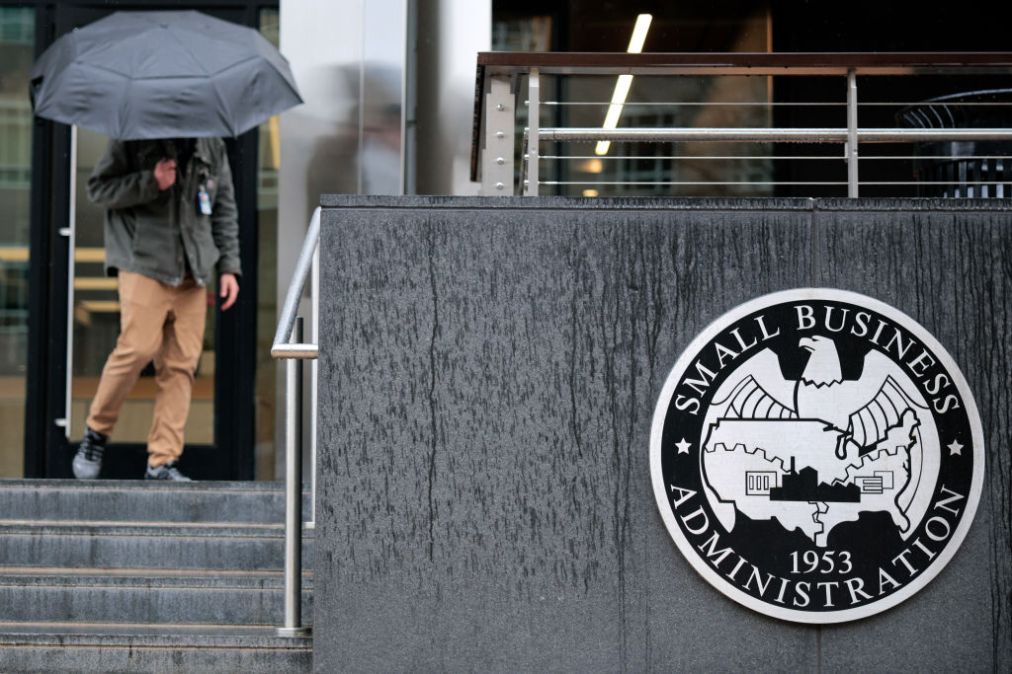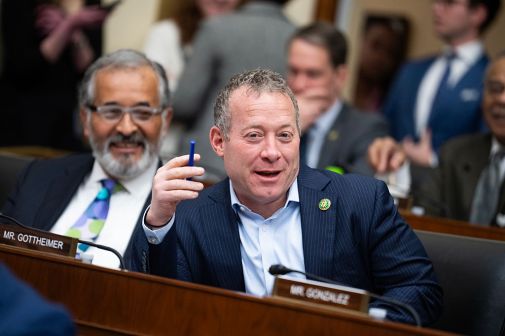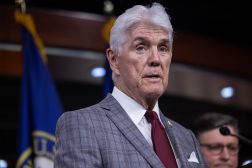Pair of AI-focused SBA bills advance in the House

Two bills aimed at strengthening the Small Business Administration’s ability to provide artificial intelligence-related services to its clients moved forward in the House on Tuesday, setting both up for a vote before the full chamber.
The House Small Business Committee easily cleared the AI for Mainstreet Act and the AI Wisdom for Innovative Small Enterprises (AI-WISE) Act, bipartisan pieces of legislation that had full endorsements from the panel’s chair, Republican Roger Williams of Texas, and its ranking member, Democrat Nydia Velázquez of New York.
“As AI becomes an integral driver of productivity and competitiveness across the economy, small businesses must not be left behind,” Williams said. “Technology won’t wait for small businesses to catch up, and Congress must help bridge that gap, to help close the innovation divide.”
The AI for Mainstreet Act directs SBA’s Small Business Development Centers to provide guidance, training and outreach to small businesses on all things AI. Rep. Mark Alford, R-Mo., who co-sponsored the bill, said the legislation builds on the AI U Program, a SBDC initiative with backing from Google that makes 1-on-1 coaching and other AI training resources available to small businesses.
“As we all know, the AI revolution is not coming; it is already here. And if any company from Main Street to Wall Street is not adapting, they will be left behind,” Alford said, adding that the bill will “ensure that Main Street gets the counseling they need to survive and thrive during the AI era, which is not going away anytime soon.”
In addition to sharing with small businesses best practices for AI use in their work, the legislation directs SBDCs to show their clients how AI can plan for unexpected circumstances, protect intellectual property, improve cybersecurity, bolster customer trust, and be used effectively in other operational areas.
Rep. Hillary Scholten, D-Mich., the bill’s other co-sponsor, said it’s clear the committee has “recognized the absolute revolutionary power that AI” can have on small businesses, but too many of those businesses “don’t know how to access its power in a responsible way.”
“This bill will help small businesses get quality guidance on how to adopt artificial intelligence into their operations at a time when AI tools are becoming more accessible, but also more complex,” she continued. “Small business owners need trusted local resources to help them navigate this new terrain. … We are meeting small business owners where they are and giving them tools that they can put to work immediately.”
Scholten also co-sponsored the AI-WISE Act, which would charge the SBA administrator with creating AI educational resources and learning modules that would be hosted on an existing agency platform. Those resources would cover myriad AI-related topics, including how best to identify AI risks, whether an AI tool would fit a specific business need, best practices for coordinating with third-party AI vendors, and much more.
Scholten said the bill would ensure that small business owners are “empowered with clear, actionable information on how to leverage AI in their operations,” in addition to helping those clients make better data-driven decisions, utilizing automation and leveling up customer service.
Under the legislation, the SBA administrator would consult with the director of the National Institute of Standards and Technology and members of an advisory working group on making sure the AI resources provided to small businesses are factually accurate and current.
Rep. Troy Downing, R-Mont., the bill’s other co-sponsor, said the legislation was designed so that small businesses aren’t left behind as the emerging technology becomes more ubiquitous in daily life.
“Businesses with substantial and stable access to capital tend to be better positioned for technology adoption and dealing with its ramifications. Small businesses, on the other hand, including businesses in rural communities like my home district of central and eastern Montana, often lack the resources and information needed to facilitate technology adoption,” Downing said. “The AI-WISE Act will ensure SBA provides small businesses with the information that they will need to most effectively utilize AI to bolster their business.”






